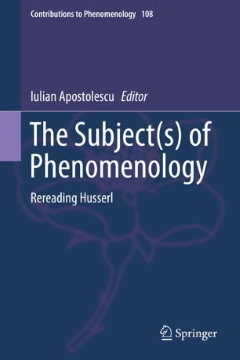Husserl and his shadows
phenomenology after Merleau-Ponty
pp. 311-326
Abstract
This essay takes up Merleau-Ponty's reading of Husserl as it is expressed in the essay Le philosophe et son ombre and his 1958–1959 course at the Collège de France, La philosophie aujourd"hui, in dialogue with Levinas's 1948 essay, La réalité et son ombre. I argue that it is a Levinasian sense of the shadow that must be heard in Merleau-Ponty's text, "the event of being's darkening," and that, correlatively, Husserl's work must not be treated as a luminous canon, as a set of scriptures bereft of all darkness, but that the brilliance of the founder of phenomenology lies in his multiplicity: that Husserl was always otherwise than himself, haunted by his shadows. In this way, we can say with thinkers like Derrida, that at the point where Husserl was a thinker of strenge Wissenschaft he was also a thinker of that which resists reduction, "what resists phenomenology within us."
Publication details
Published in:
Apostolescu Iulian (2020) The subject(s) of phenomenology: rereading Husserl. Dordrecht, Springer.
Pages: 311-326
DOI: 10.1007/978-3-030-29357-4_17
Full citation:
Whitmoyer Keith (2020) „Husserl and his shadows: phenomenology after Merleau-Ponty“, In: I. Apostolescu (ed.), The subject(s) of phenomenology, Dordrecht, Springer, 311–326.


